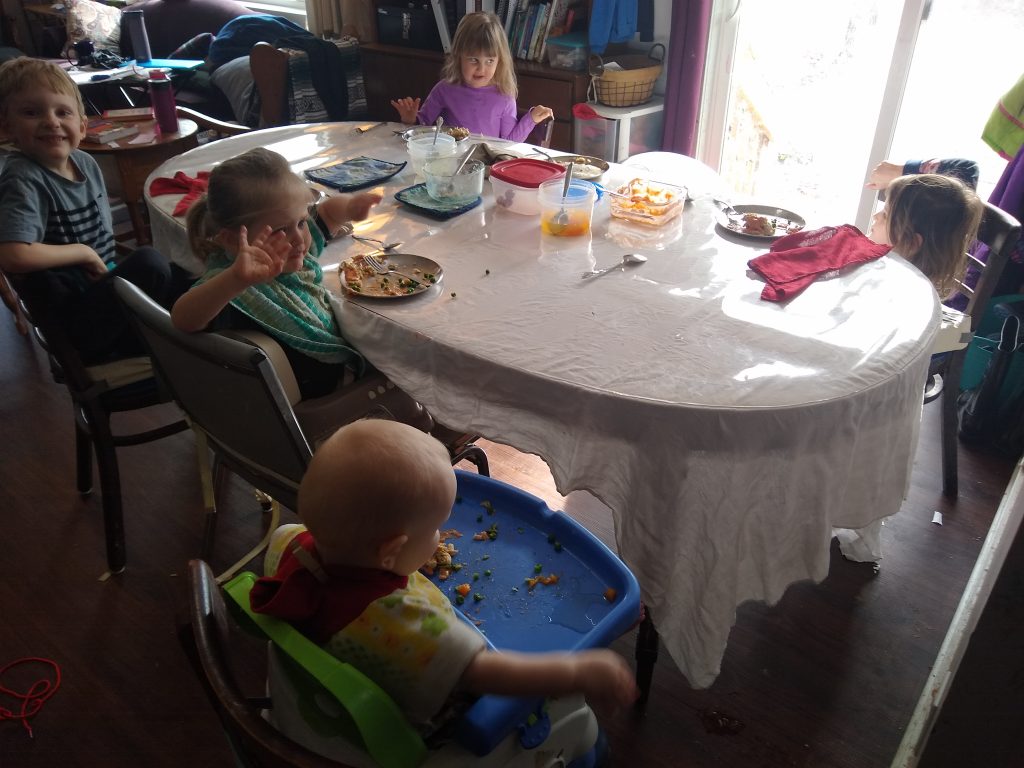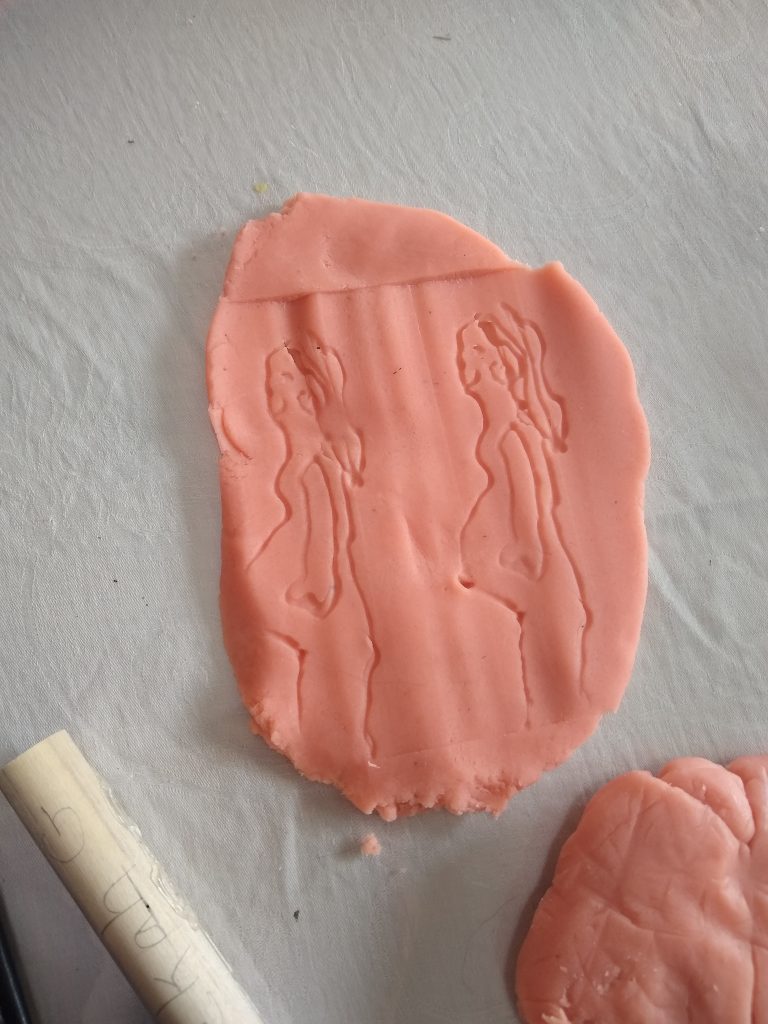How many times have people commented on what they see as the impossibility of our life? Difficult deliveries. Lots of young children, one right after the other. Foster care thrown on top.
How many times have I responded back that God gives grace for what he gives? I didn’t have the grace (or the skills) for three when I only had two – but God gave the grace when he gave the third child. Ditto four. And five. (Even if the skills are still a work in progress, to be honest!)
Nothing makes this more clear than when a foster child moves from our home.
Sweet P lived with us for 20 months and was reunited with her biological family in November of last year. We were so excited (still are!) to be able to participate in a successful reintegration. Of course, it was bittersweet – as happy as we are for her and her family, we are also sad to no longer have the connection we once had (We are so thankful that we have a good relationship with Sweet P’s family and have been able to see her a few times since reintegration, most recently an overnight just last night.)

Anyway, having a foster child move is bittersweet, but there’s another feeling I wasn’t quite prepared for when we started fostering. It was a feeling of… ease. Like, “wow, it’s a lot easier to parent four than five.”
The strange thing is, it wasn’t that easy to parent four back before four became five. My capacity expanded somewhere along the way. God gave grace for what he gave – grace for five.
But our family size contracted for a bit, and the bit of ease that comes with four instead of five has given me additional wiggle room now that I’m frequently parenting alone while Daniel travels for business. And has given me some additional wiggle room to help me establish good habits in our homeschool.
But it’s time for expansion again.
Four children has become five again.
Not a foster child this time. We’re not sure when Daniel will be done traveling and the logistics of a new placement don’t work very well with our current situation (lots of appointments that need to be done rapidly don’t work very well when you have four other children that you can’t take with you – thanks COVID! – and a husband that may or may not be out-of-state at any time in the near future). So we won’t be taking new foster children until we have a more settled schedule.

But four has become five again – it’s time to stop popping bon-bons (ha!) Instead, we are preparing to expand again as God gives grace for a new little one arriving on the outside sometime in September.
